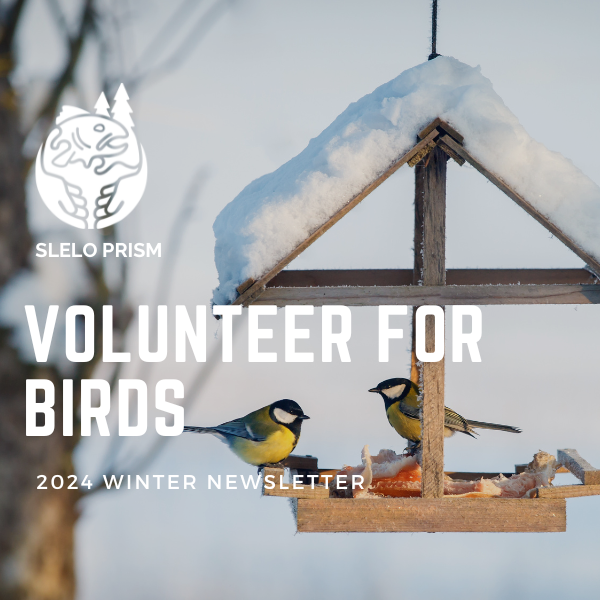This article was featured in the 2024 Winter Newsletter by Linda Gibbs-Tug Hill Tomorrow Land Trust.
Every spring, Tug Hill Tomorrow Land Trust’s Bird Quest program enlists volunteer birder teams to record the species and numbers of birds they observe at their bird feeders in and around the Tug Hill region during the third week of May. The land trust provides educational resources, donated supplies upon request, and technical assistance from January through May, with a compilation report for the event distributed in early June.
This year, Tug Hill Tomorrow Land Trust is asking bird watchers to avoid placing bird feeders in or spreading seed on the ground under any Hemlock trees. Gathering birds to feed in or near these trees increases the possibility of hemlock woolly adelgid insects hitching a ride on birds’ feet, unintentionally spreading it to other trees. If you feed birds, please take a moment to identify the trees in your yard and nearby, survey any hemlock trees for evidence of HWA (white woolly masses found on the underside of branches), and report your observations in iMapInvasives.
You can help birds further by using best practices to remove invasive and non-native species in your yard and replacing them with native plants. Reducing mowed areas and adding native plants in your yard can be attractive and provide healthy food and cover for insects and birds throughout the year. Audubon, the American Bird Conservancy, and local Cornell Cooperative Extensions are great places to start for native plant recommendations.
Please fill out the form below to be added to our listserv and receive our seasonal newsletter, event invitations and other announcements.


